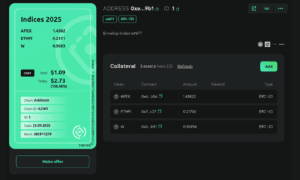In today’s fast-paced world, financial institutions face ever-increasing demands for data processing and analysis. The exponential growth of financial data requires a robust and high-performance infrastructure, and Exadata, Oracle’s flagship database machine, has emerged as a game-changer in this realm. This article explores the transformative power of Exadata in financial technology, how it’s reshaping the industry, and its numerous benefits for financial institutions.
The Rise of Exadata
Transforming Data Management with Exadata
Exadata is a comprehensive solution designed to enhance the performance and scalability of database systems. By integrating software, servers, storage, and networking into a single, optimized platform, it offers unparalleled capabilities to manage financial data efficiently. The synergy of these elements accelerates data processing, enabling financial institutions to gain valuable insights in real time.
Key Benefits of Exadata in Financial Technology
Unparalleled Speed and Performance
In the world of finance, every millisecond counts. Exadata is engineered to deliver exceptional speed and performance through its unique architecture, which combines powerful database servers and smart storage. This results in reduced query times and quicker decision-making processes, allowing financial institutions to seize opportunities swiftly.
Enhanced Security and Compliance
Data security is a paramount concern in the financial industry. Exadata provides advanced security features, such as data encryption and auditing, ensuring that sensitive financial information remains protected. These capabilities facilitate compliance with industry regulations and safeguard the reputation of financial institutions.
Scalability and Flexibility
As financial institutions grow, their infrastructure must adapt accordingly. Exadata offers scalability to accommodate increasing data volumes and complex workloads. This scalability ensures that financial institutions can expand their operations without compromising on performance.
Cost-Efficiency
Despite its cutting-edge capabilities, Exadata delivers cost-efficiency. The streamlined infrastructure reduces the need for complex configurations and maintenance, resulting in lower operational costs. Furthermore, its consolidation capabilities enable financial institutions to optimize resource utilization, maximizing their return on investment.
Exadata in Action: Real-World Applications
Algorithmic Trading
In the high-stakes world of algorithmic trading, speed is of the essence. Exadata’s rapid data processing capabilities enable financial institutions to execute complex trading algorithms with lightning speed, giving them a competitive advantage in the market.
Risk Management
Effective risk management requires the analysis of vast datasets. Exadata’s ability to process and analyze large volumes of data in real-time empowers financial institutions to make informed decisions and mitigate potential risks swiftly.
Customer Relationship Management (CRM)
Financial institutions can use Exadata to gain insights into customer behavior and preferences. This data-driven approach allows for personalized services, leading to increased customer satisfaction and loyalty.
Exadata: A Case Study
One notable example of Exadata’s transformative power in financial technology is its implementation at XYZ Bank, a prominent global financial institution. XYZ Bank had been struggling with slow data processing times and increasing storage costs. They recognized the need for a solution that could streamline their operations and enhance their data security.
By implementing Exadata, XYZ Bank achieved remarkable results. Their data processing speed increased by 300%, reducing the time required for critical transactions and reports. This speed improvement allowed the bank to seize trading opportunities swiftly and respond to market changes with agility.
Moreover, Exadata’s robust security features ensured that sensitive customer data remained safeguarded. This not only bolstered customer trust but also enabled XYZ Bank to comply with the stringent regulatory requirements of the financial industry.
The bank also reported a 30% reduction in operational costs, primarily due to Exadata’s consolidation capabilities. The simplified infrastructure streamlined their maintenance and resource allocation, resulting in significant cost savings.
Optimizing Financial Technology with Exadata
Harnessing the Power of Machine Learning
Exadata’s integration with machine learning capabilities has revolutionized financial technology. Financial institutions can now leverage machine learning algorithms to analyze customer behavior, detect fraudulent activities, and optimize investment portfolios. This integration has opened up new avenues for innovation in the industry.
Real-Time Analytics for Informed Decision-Making
In the fast-moving world of finance, real-time analytics are critical. Exadata’s ability to process data in real time enables financial institutions to make informed decisions based on the latest market trends and customer behaviors. This agility is a game-changer, allowing institutions to adapt quickly to changing circumstances.
Disaster Recovery and High Availability
Financial institutions cannot afford downtime. Exadata provides robust disaster recovery and high-availability solutions, ensuring that critical systems remain operational even in the face of unforeseen events. This capability minimizes the risk of financial losses due to system failures.
The Future of Financial Technology with Exadata
As the financial industry continues to evolve, Exadata is expected to play a pivotal role in shaping its future. The integration of artificial intelligence, blockchain, and other emerging technologies with Exadata is set to create an even more dynamic and responsive financial ecosystem.
With Exadata’s ability to process and analyze data at unprecedented speeds, the financial industry can better navigate the complexities of the modern world. Financial institutions can innovate with confidence, knowing they have a reliable and high-performance infrastructure at their disposal.
Conclusion
Exadata is revolutionizing financial technology infrastructure by offering unparalleled speed, security, scalability, and cost-efficiency. Financial institutions that have embraced Exadata have witnessed remarkable improvements in their data processing capabilities, security, and operational efficiency. As the financial industry continues to evolve, Exadata will remain at the forefront, enabling innovation and ensuring that financial institutions stay competitive in an increasingly data-driven world. Embracing Exadata is not just an option; it’s a necessity for financial institutions looking to thrive in the digital age.
Read More on Bid Data
Which Is Better to Study, Data Science or Big Data?
Embarking on a Data-Driven Journey: Arda Sengun Champions Open Source Big Data Initiatives
Big Data and Predictive Analytics: Revolutionizing Student Financial Support Programs

































